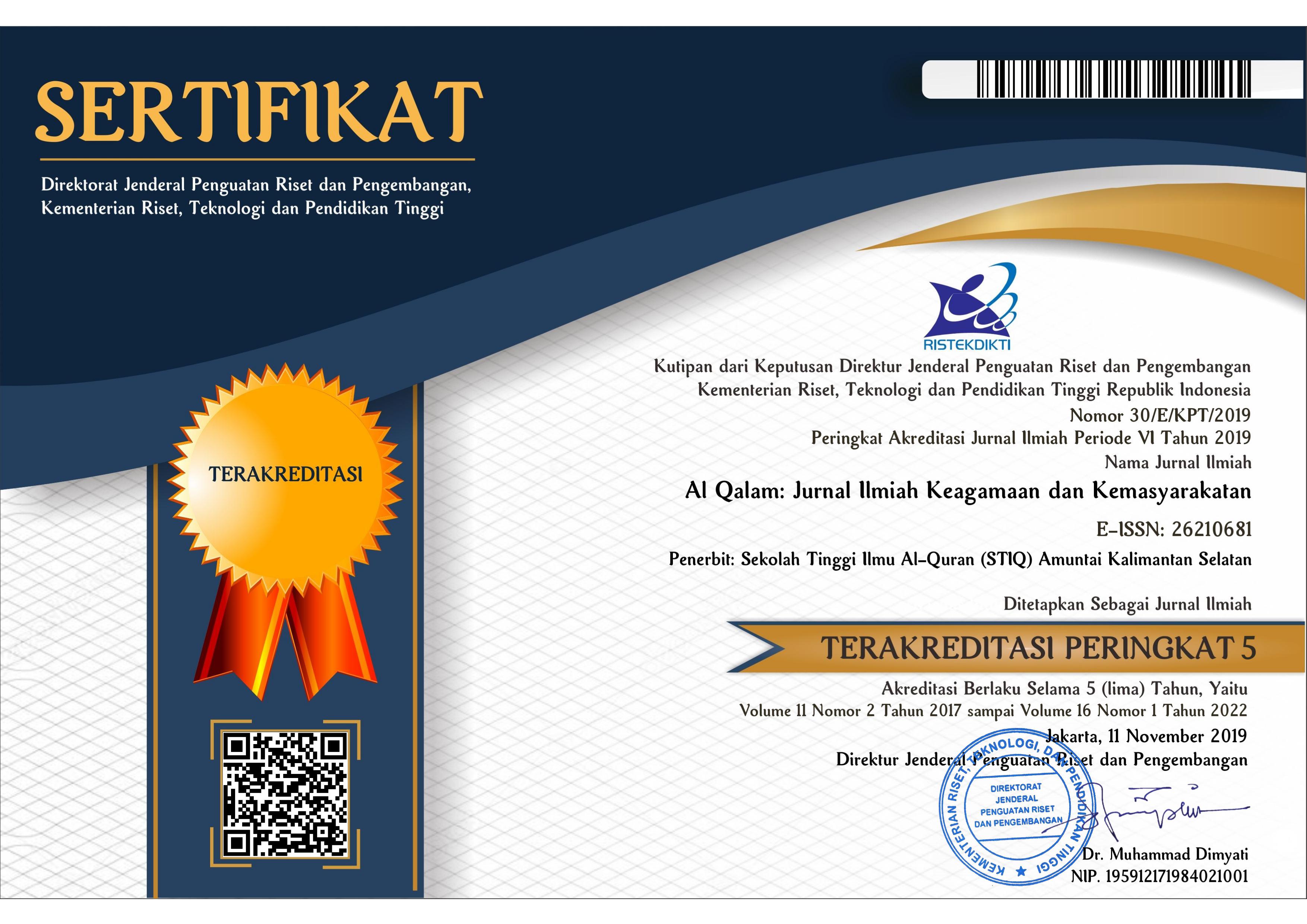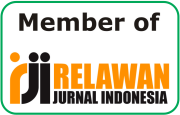Implementation of Good Corporate Governance to Increase Muzakki Loyalty in Zakat Institutions
Abstract
The implementation of Good Corporate Governance (GCG) principles in the management of zakat institutions is one of the strategic efforts to increase muzaki loyalty. GCG, which includes the principles of transparency, accountability, responsibility, independence, and fairness, is an important foundation in the management of professional and trustworthy zakat institutions. This study aims to analyze the implementation of GCG and its impact on the level of muzaki loyalty in LAZ DPU East Kalimantan. Using qualitative research methods, data were collected through observation, interviews, and documentation. The results of the study indicate that LAZ DPU has implemented GCG on the principle of transparency in periodic reports, and institutional governance. Accountability is implemented through legal accountability, bookkeeping and recording, and duties and responsibilities. Performance and programs are also recognized in reports and audits. Independence is implemented to maintain integrity and neutrality in distribution, as well as fairness in service. The consistent and optimal implementation of GCG in LAZ DPU East Kalimantan has a positive impact on muzaki loyalty. Increasing trust and positive perceptions of muzaki towards transparent and accountable zakat management are the main factors influencing their loyalty.
Keywords
Full Text:
PDFReferences
Abdullah Sani, A’ieshah, Khairunnisa Abd Samad, Amilia Saidina, Siti Azrina Adanana, Khair Syakira Bustamama, and Siti Nurulhuda Mamata. “Enhancing the Role of Zakat Institutions Through Good Corporate Governance for Economic Sustainability: A Case from Majlis Agama Islam Melaka & Pusat Zakat Melaka.” International Journal of Academic Research in Economics and Management Sciences 10, no. 3 (2021): 287–300. https://doi.org/10.6007/ijarems/v10-i3/10984.
Amalia, Euis. “Good Governance for Zakat Institutions in Indonesia: A Confirmatory Factor Analysis.” Pertanika Journal of Social Sciences and Humanities 27, no. 3 (2019): 1815–27.
Ambarsari, Livia, Khoirul Anwar, Setyo Budi Hartono, and Herwening Sindu Lestari. “Analisis Penerapan Good Corporate Governance Pada Sistem Pelaporan Keuangan BAZNAS Kabupaten Kebumen.” At-Taqaddum 12, no. 2 (2020): 169–82. https://doi.org/10.21580/at.v12i2.6183.
Arofata Tsalas, N, A Jajang W Mahri, and R Rosida. “Zakat Compliance Behaviour: Good Corporate Governance with Muzaki’s Trust Approach (Survey on Muzaki of the National Board of Zakat (BAZNAS) in Garut).” KnE Social Sciences 3, no. 13 (2019): 796. https://doi.org/10.18502/kss.v3i13.4248.
Atsarina, Alyani. “Analisis Penerapan Good Corporate Governance Pada Organisasi Pengelola Zakat (Studi Kasus Di Badan Amil Zakat Nasional Dan Dompet Dhuafa).” Jurnal Menara Ekonomi : Penelitian Dan Kajian Ilmiah Bidang Ekonomi IV, no. 2 (2018): 5.
Ayuniyyah, Qurroh, Didin Hafidhuddin, and Hambari Hambari. “The Strategies in Strengthening the Role of Zakat Boards and Institutions in Indonesia.” International Journal of Zakat 5, no. 3 (2020): 73–87. https://doi.org/10.37706/ijaz.v5i3.244.
Bangun, Ulen. “Application of Good Corporate Governance Principles (Gcg in Zakat Management (Case Study Binjai City Baznas).” Wahana Inovasi: Jurnal Penelitian Dan Pengabdian … 11, no. 1 (2022).
Chandra N, Christian. “Implementasi Prinsip-Prinsip Good Corporate Governance Pada Rumah Sakit.” Agora 4, no. 2 (2016): 394–98.
Chusnul Rofiah, Dwi Wahyuni. “Kualitas Pelayanan Dan Pengaruhnya Terhadap Loyalitas Pelanggan Yang Di Mediasi Oleh Kepuasan Di Bank Muamalat Jombang.” Eksis: Jurnal Riset Ekonomi Dan Bisnis 12, no. 1 Apr (2017): 69–82.
Effendi, Muh. Arief. The Power Of Corporate Governance: Teori Dan Implementasi. Jakarta: Salemba Empat, 2009.
Fadilah, Sri, Rini Lesatari, and Yuni Rosdiana. “Organisasi Pengelola Zakat (OPZ): Deskripsi Pengelolaan Zakat Dari Aspek Lembaga Zakat” 18, no. 2 (2017): 148–63.
Fathaniyah, Lidia, and Makhrus. “Peran Organisasi Pengelola Zakat Dalam Pemberdayaan Masyarakat Di Kabupaten Banyumas.” Jurnal Ilmiah Ekonomi Islam 8, no. 1 (2022): 632–40.
Firmansyah, Irman, and Abrista Devi. “The Implementation Strategies of Good Corporate Governance for Zakat Institutions in Indonesia.” International Journal of Zakat 2, no. 2 (2017): 85–97. https://doi.org/10.37706/ijaz.v2i2.27.
Hafidhuddin, Didin, and Irfan Syaugi Beik. Zakat Dan Pembangunan Perekonomian Umat. Jakarta: Gema Insani Press, 2005.
Hafiduddin, Didin. Zakat Dalam Perekonomian Modern. Jakarta: Gema Insani, 2002.
Handoyo. “Rekonstruksi Kebijakan Terhadap Regulasi Zakat Pada Masa Kolonial Belanda Di Indonesia.” Syariati: Jurnal Studi Al-Qur’an Dan Hukum 9, no. 2 (2023): 195–205.
Hardani. Metode Penelitian Kualitatif Dan Kuantitatif. Yogyakarta: CV. Pustaka Ilmu Group, 2020.
Latifah, Sri Wahjuni, Siska Aprilia, and Dhaniel Syam. “Analisis Perbandingan Good Corporate Governance Baznas Dan Laznas.” Jurnal Akuntansi 9, no. 2 (2019): 97–110. https://doi.org/10.33369/j.akuntansi.9.2.97-110.
Lewis, Mervyn K. “Principles of Islamic Corporate Governance.” Handbook on Islam and Economic Life, 2014, 243–67. https://doi.org/10.4337/9781783479825.00021.
Lumentut, Lisma, Badriyah Rifai, Sukarno Aburaera, and Juajir Sumardi. “The Transparency Principle in Realize Good Corporate Governance: Limited Company.” IOSR Journal of Humanities and Social Science 22, no. 04 (2017): 50–57. https://doi.org/10.9790/0837-2204075057.
Mannan, Muhammad Abdul. Teori Dan Praktik Ekonomi Islam. Yogyakarta: Dana Bhakti Wakaf, 1997.
Moleong, Lexy J. Metodologi Penelitian Kualitatif. Remadja Karya, 1989.
Muhammad, and Ridwan Mas’ud. Zakat Dan Kemiskinan Instrumen Pemberdayaan Ekonomi Umat. Yogyakarta: UII Press, 2005.
Norvadewi, Norvadewi, Akhmad Nur Zaroni, and Fitria Rahmah. “Zakat Management in the Covid-19 Pandemic Era.” El Dinar 9, no. 2 (2021): 165–81. https://doi.org/10.18860/ed.v9i2.13452.
Qardhawi, Yusuf. Hukum Zakat, Studi Komparatif Mengenai Status Dan Filsafat Zakat Berdasarkan Al-Qur‟an Dan Hadist. Edited by Salma Harun et Al. 10th ed. Bogor: Pustaka Litera Antar Nusa, 2007.
Risnawati, Andi Niken Ayu N.F., Rahmawati Muin, and Mukhtar Lutfi. “Permasalahan Dan Solusi Pengelolaan Zakat Di Indonesia.” INNOVATIVE: Journal Of Social Science Research 3, no. 3 (2023): 2527–41.
Saad, Ram Al Jaffri, Norazita Marina Abdul Aziz, and Norfaiezah Sawandi. “Islamic Accountability Framework in the Zakat Funds Management.” Procedia - Social and Behavioral Sciences 164, no. August (2014): 508–15. https://doi.org/10.1016/j.sbspro.2014.11.139.
Sangaji, M, and Sopiah. Perilaku Konsumen. Yogyakarta: CV. Andi Offset, 2013.
Sary, Clara Devy Yulvia Ratna, Sunaryanto, and Heri Pratikto. “The Meaning of Good Corporate Governance Principles for Zakat” 18, no. 5 (2019): 329–34.
Sawandi, Norfaiezah, Norazita Marina Abdul Aziz, and Ram Al Jafri Saad. “Discharging Accountability: A Case Study of a Zakat Institution in Malaysia.” International Journal of Supply Chain Management 8, no. 1 (2019): 676–82.
Setyahadi, R. Rulick, and I. Made Narsa. “Corporate Governance and Sustainability in Indonesia.” Journal of Asian Finance, Economics and Business 7, no. 12 (2020): 885–94. https://doi.org/10.13106/JAFEB.2020.VOL7.NO12.885.
Soelton, Mochamad, Yanto Ramli, Dewi Anggraini, and Danny Khosasi. “Implementing Good Corporate Governance to Engage Corporate Social Rerponsibility in Financial Performance.” European Research Studies Journal XXIII, no. 1 (2020): 239–58.
Tahliani, Hani. “Contribution of Good Governance Principles to Strengthening Zakat Management in Indonesia: Confirmatory Factor Analysis.” International Journal of Zakat 3, no. 3 (2018): 39–54. https://doi.org/10.37706/ijaz.v3i3.94.
Takidah, Erika, and Ajeng Pratiwi. “Governance and Trust in Zakat Institution.” In 1st International Conference on Islamic Economics, Business, and Philanthropy (ICIEBP), 870–75. SCITEPRESS – Science and Technology Publications, 2021. https://doi.org/DOI: 10.5220/0007091508700875.
Tjiptono, Fandy. Pemasaran Jasa, Indikator Kepuasan Pelanggan. Malang: Bayumedia Publishing, 2005.
Wijayanto, Dian. Pengantar Manajemen. Jakarta: PT. Gramedia Pustaka Utama, 2012.
Wijayati, Fitri Laela. “Conceptualization Good Amil Governance In Zakat Institution.” Journal of Business Management Review 2, no. 2 (2021): 107–35. https://doi.org/10.47153/jbmr22.1032021.
Yuliafitri, Indri, and Asma Nur Khoiriyah. “Pengaruh Kepuasan Muzaki, Transparansi Dan Akuntabilitas Pada Lembaga Amil Zakat Terhadap Loyalitas Muzaki (Studi Persepsi Pada LAZ Rumah Zakat).” Jurnal Ekonomi Islam 7, no. 2 (2016): 205–18.
Zadjuli, Suroso Imam, Atina Shofawati, and Muryani. “Implementing Good Corporate Governance in Zakat Institution.” Bussecon Review of Social Sciences (2687-2285) 2, no. 1 (2020): 27–37. https://doi.org/10.36096/brss.v2i1.158.
Zaroni, Akhmad Nur. “How Does Generation Z Pay Zakat.” Journal of Management 3, no. 1 (2024): 7–11.
Zaroni, Akhmad Nur, Sofia Maulida, Heny Herawati, Syamsu Rijal, and Arief Yanto Rukmana. “Indonesian Skin Care Stores’ Emotional Marketing.” Jurnal Ilmiah Manajemen Dan Kewirausahaan (JIMAK) 3, no. 3 (2023): 129–38.
DOI: http://dx.doi.org/10.35931/aq.v19i3.5004
Refbacks
- There are currently no refbacks.
Copyright (c) 2025 Akhmad Nur Zaroni, Muhammad Iswadi

This work is licensed under a Creative Commons Attribution 4.0 International License.
Al Qalam: Jurnal Ilmiah Keagamaan dan Kemasyarakatan
index by:
Publish by:
Sekolah Tinggi Ilmu Al-Qur'an Amuntai
Contact us:
Address: Jl. Rakha Pakapuran, Amuntai Utara
Kabupaten : Hulu Sungai Utara
Kode Pos : 71471
Provinsi : Kalimantan Selatan
Telephone : 085251613000
Email: hafizhihusinsungkar@gmail.com

This work is licensed under a Creative Commons Attribution 4.0 International License


